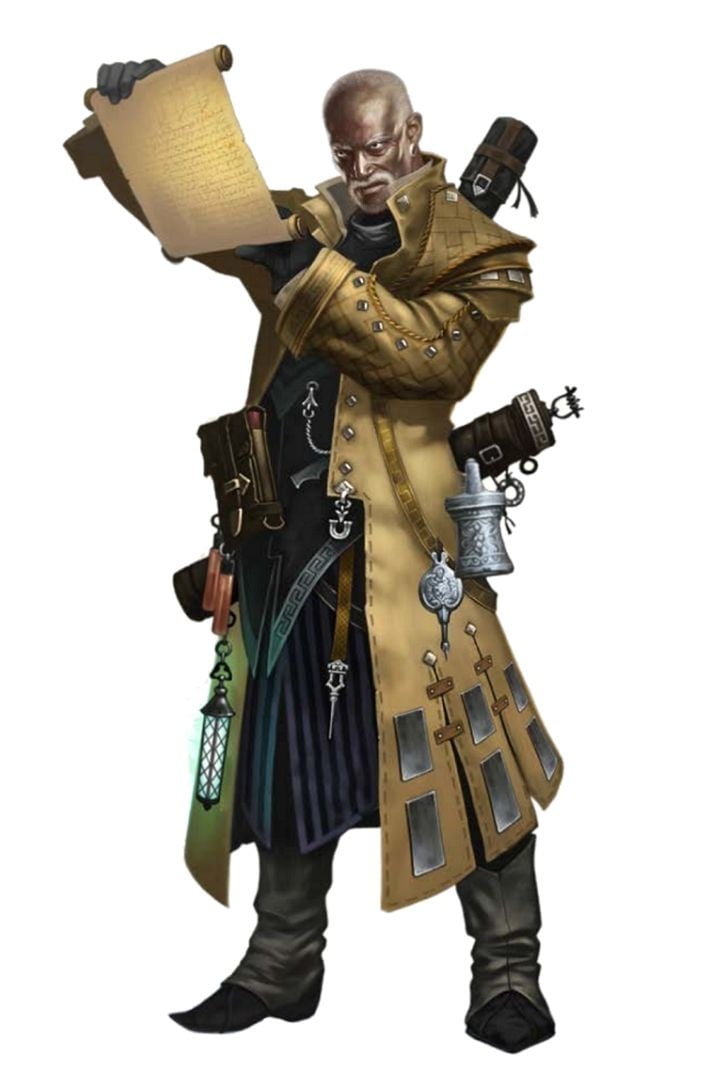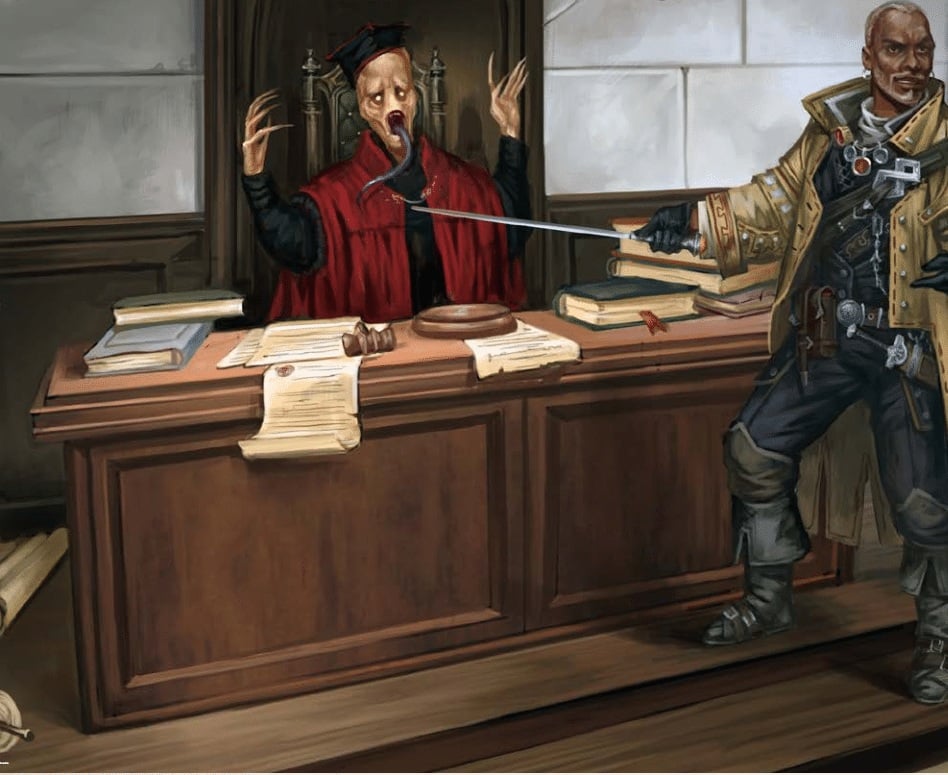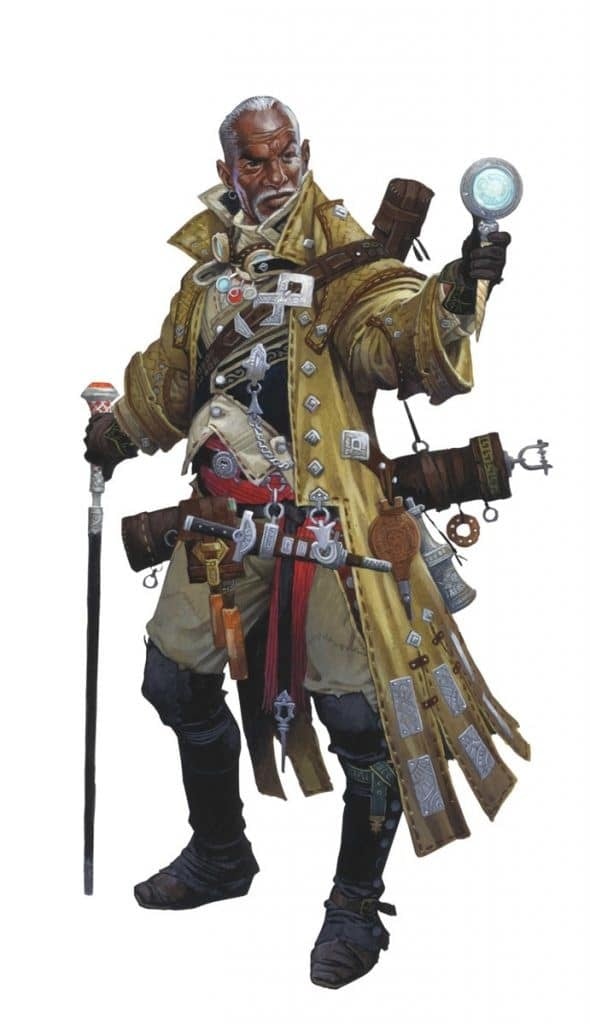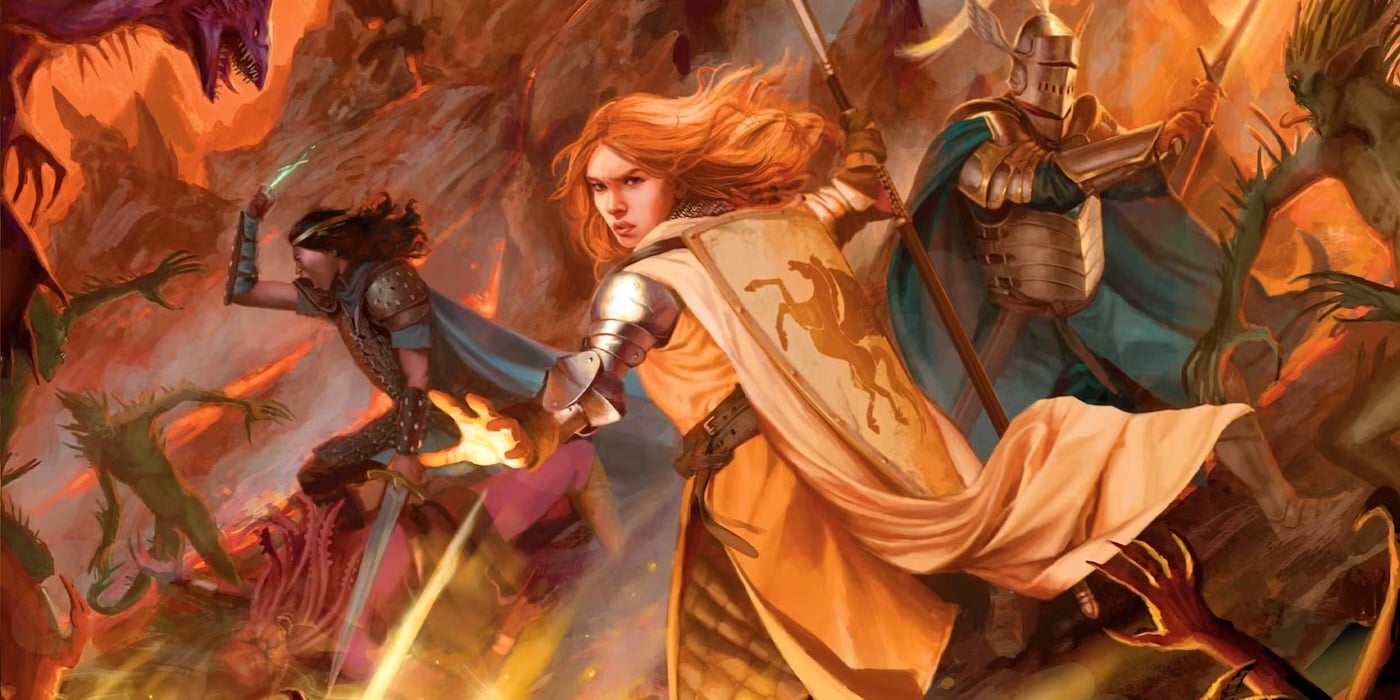Pathfinder Guide: How to Play an Investigator
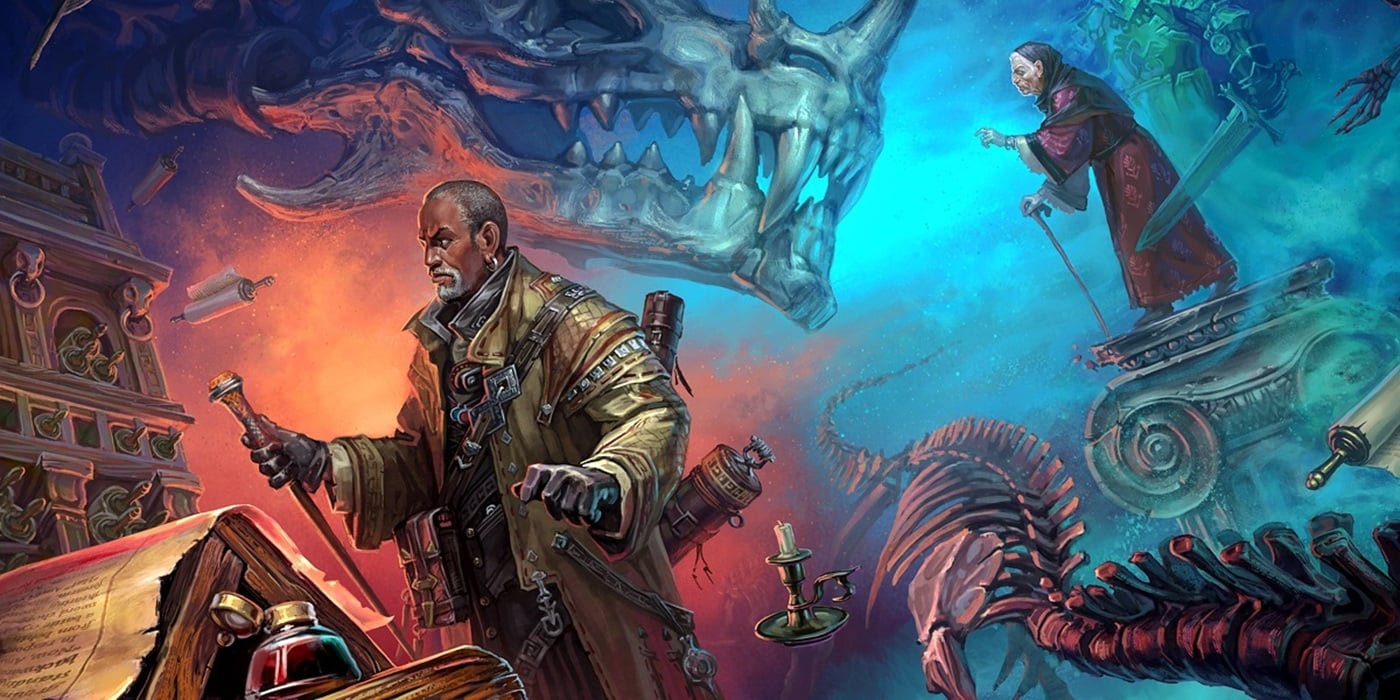
From solving mysteries to finding the foe’s greatest weakness and striking there with ease, the Pathfinder Investigator sees all.
There are many opportunities to play smart characters in Pathfinder. But if you want a character who uncovers hidden truths, reveals dastardly plots, and generally unravels any mystery the party comes across, you’ll want to flip to the Player Core 2 for the Investigator. For the Pathfinder Investigator, knowledge isn’t just good to have, it is its own weapon. An analytical mind will find the solutions to problems others didn’t even recognize yet. And studying dangerous and enemies will allow you to exploit a foe’s weaknesses.
Jump to…
The Pathfinder Investigator Basics
Strongly prioritizing their mind over more physical attributes, Investigators take a boost to their Intelligence stat at Character creation. They also start with expert-level training in Perception as well as their Reflex, and Will saving throws. These characters will also start their adventure with training in Fortitude, Society, simple and martial weapons, unarmed attacks, light armor, unarmored attacks, an additional number of skills equal to their Intelligence modifier plus four, and another skill or two determined by their chosen methodology.
In combat, Investigators likely won’t be the star of the battlefield in terms of sheer strength or brute force. Instead, they study their enemies. These keen insights allow them to strike quickly, and strike where they know it will hurt most. An Investigator may not go out of their way to start a fight on their own. But they are very likely to be working with more physically imposing party members, both receiving protection and providing vital assistance and information
In non-combat situations, Investigators are always observing. They take in all of the details of their environment and have scrutinized every bit of their surroundings. Regular conversations may turn into investigations or opportunities to uncover small clues. But this information may just come in handy later while getting to the bottom of the mystery or escaping (or avoiding) a trap.
On the Case
The Pathfinder Investigator thinks of every adventure as another case waiting to be solved. To this end, they gain one activity and one reaction that t hey can use while investigating cases; Pursue a Lead and Clue In.
In Pursue a Lead, the Investigator can name one detail that they think is part of the larger mystery and spend a minute examining it. This will give them an opportunity to open an investigation and dig into the heart of the mystery with questions. With Clue In, another creature will attempt a check to help the Investigator get to the bottom of one of their mysteries. Once they do this, Clue In is triggered, and by sharing information with the triggering creature, the Investigator can give them a bonus to their check.
While not directly related to On the Case, Investigators can also use Devise a Stratagem. This lets them play out a battle in their mind, asses a foe’s weakness, and form an effective plan of attack.
Methodology
The Investigator’s Methodology is the core of their studies and the process they use in their investigations. These Methodologies may have piqued the character’s interest to the point of obsession. But they provide additional skills at character creation as well as a special feat.
Alchemical Sciences: This Methodology emphasizes collecting information from partials and fluids and getting to the bottom of the mystery with science and chemicals. They will also make tinctures to help with cases, similar to an Alchemist. This study provides training in the Crafting skill, the Alchemical Crafting feat, and the Quick Tincture action.
Empiricism: According to Empiricism, everything comes down to data. These Investigators will calculate statistics, run the numbers, and use reasoning to find the most likely outcome. They gain training in the Intelligence-based skill of their choice, the That’s Odd feat, and the Expeditious Inspection free action
Forensic Medicine: With this Methodology, the Investigator has learned that in almost all cases, criminals leave behind more evidence than they would like to believe. Bruising, bone fractures, and blood splatters provide their most valuable clues for reconstructing the crime scene. They gain training in the Medicine skill, as well as the Forensic Acumen and Battle Medicine feats.
Interrogation: People have a hard time not trusting and talking to Investigators who use this Methodology. They have a way of getting people to talk, and have developed an interrogation technique that’s known for getting the truth. They gain training in the Diplomacy skill, the No Cause for Alarm feat, and the Pointed Question action.
Multiclassing a Pathfinder Investigator
An adventurer may already have a job in the party, but find that they have a keen eye for mysteries and clues. And they would be a perfect candidate for multiclassing as an Investigator. For an Alchemist, it will allow them to double down on their Alchemical studies. For a Fighter, this will give them a way to find the most optimal strategy in the heat of battle. And a Ranger can use Investigator abilities to hunt their prey into the deepest jungle or busiest street corner.
Characters multiclassing as an Investigator gain access to the feats Investigator Dedication, Basic and Advanced Deduction, Investigator’s Stratagem, Keen Recollection, Skill Mastery, and Master Spotter.
How to Play a Pathfinder Investigator
The Pathfinder Investigator’s greatest strength is their mind. And players should take every opportunity to make that strength shine. In battle keep an eye out for openings and weaknesses and make sure to let your whole party know. Out of battle, be the person who’s always gathering clues, pursuing leads, and asking all of the right questions.
It’s easy to think of the Investigator as a Sherlock Holmes character who will reveal all they know at the very end. But Pathfinder is a social game played as a team, and hoarding information may diminish the fun. The information you collect as the Investigator may become useless if you don’t clue your party in. So don’t just quietly analyze your surroundings and keep it to yourself. Whether its a foe’s weakness or the key to the whole quest, your party needs to know.
Happy adventuring!

